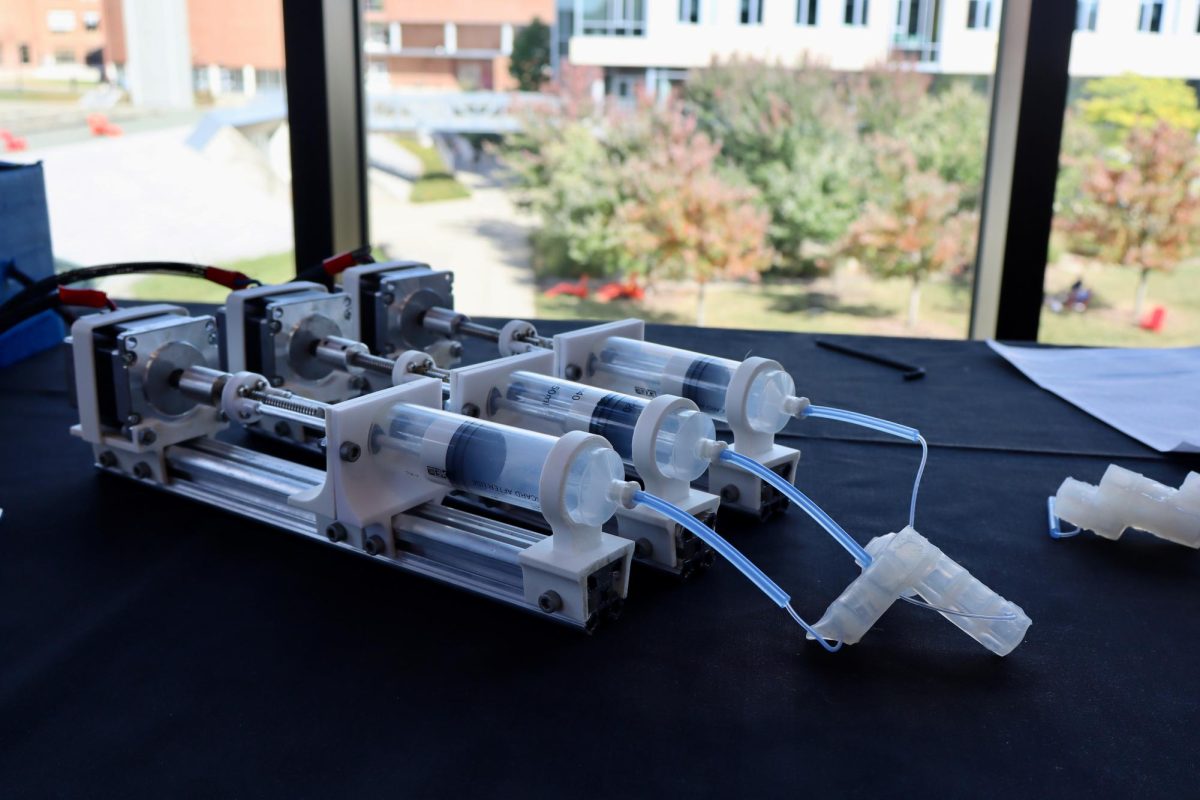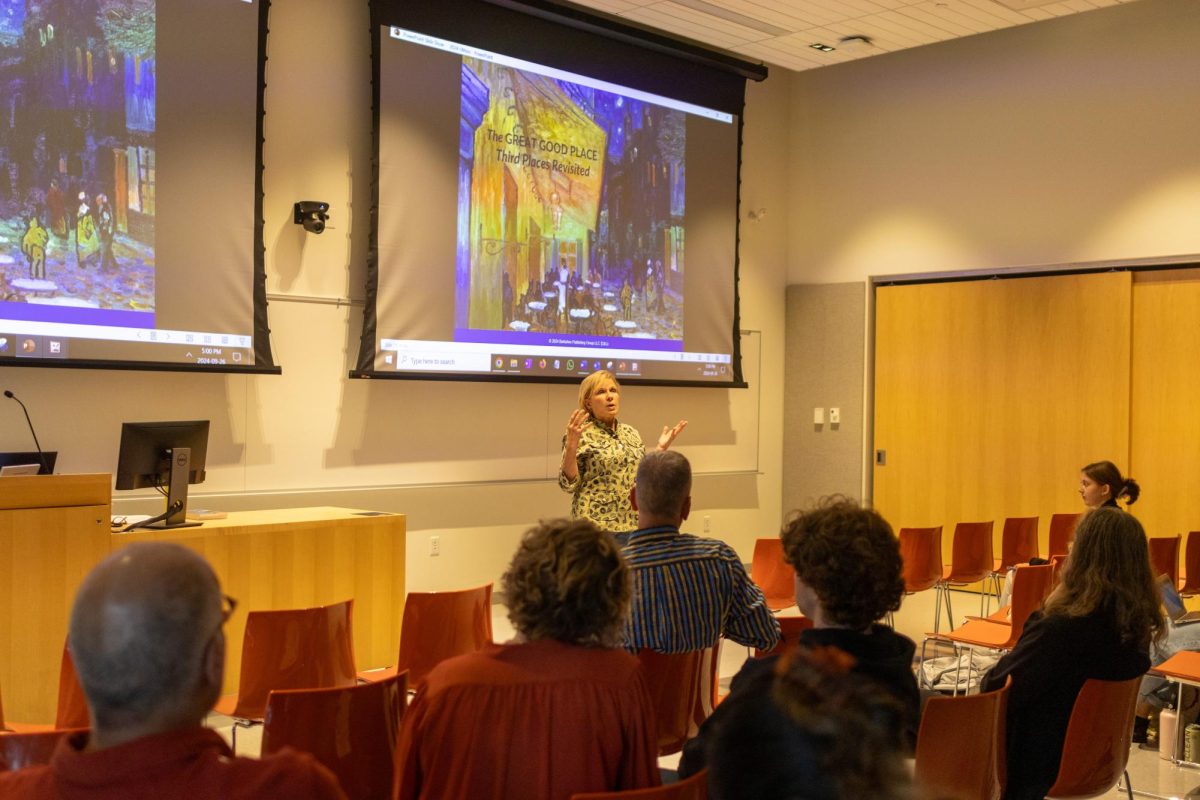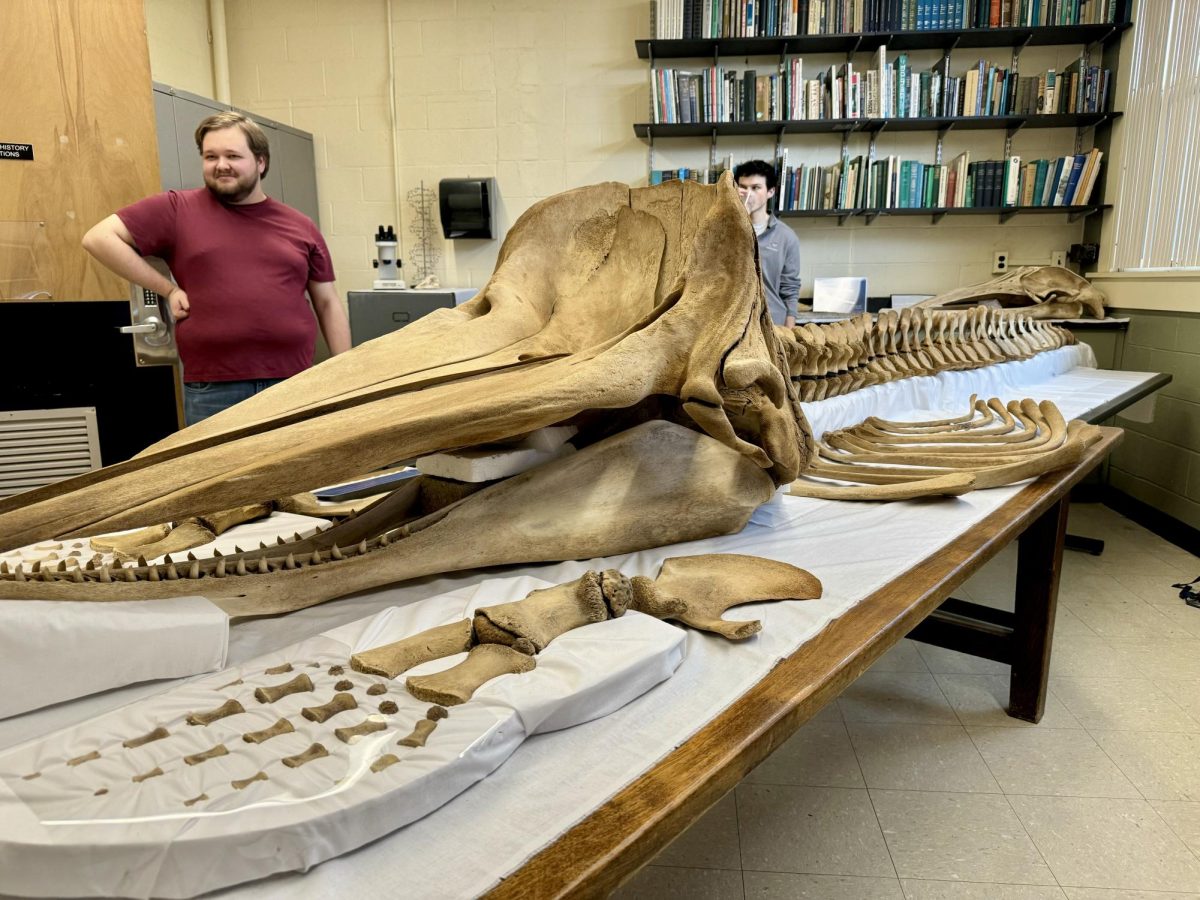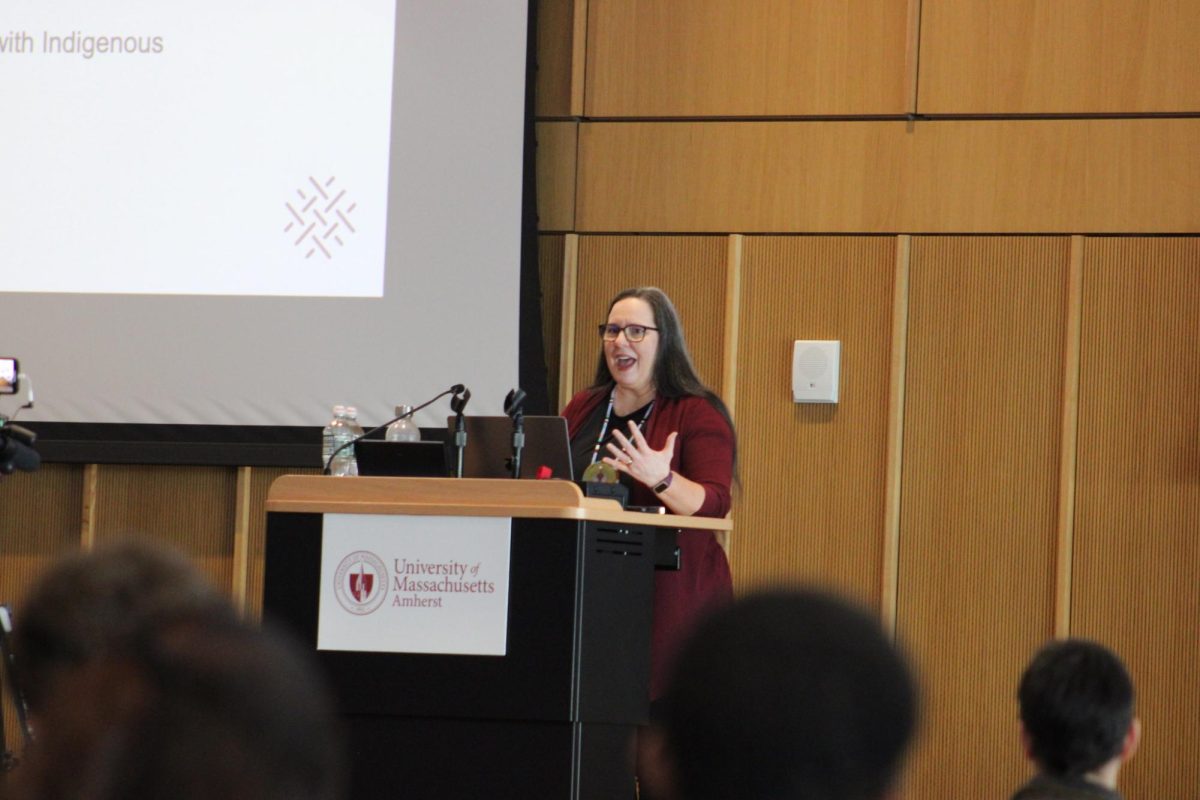
The University of Massachusetts’ Fossil Fuel Divestment Campaign has upped its tactics for raising awareness among students this semester, in response to what it sees as a lack of response from University administration regarding responsible financial investment of the school’s endowment.
Campaign members began bi-weekly marches across campus and “Call Caret Mondays” last month, where students continue to request a meeting with the UMass president.
“The idea is, one, to raise more student awareness with the marches, and two, to try and gain some support from administrators who can talk to President Caret and ask him [to] please meet with the divestment campaign,” said Sam King, media coordinator for Divest UMass.
Last April, four members of the campaign met with Executive Vice President of the Foundation, Charles Pagnam, and Chief Operating Officer Robert Goodhue to present their case for divestment from the fossil fuel industry.
“In general, the tone of the meeting was good, but not a lot of results came of it,” King said.
The campaign continued to contact UMass President Robert Caret’s office throughout the fall semester, and received a response from Pagnam in November. The letter, dated Nov. 19, 2013, informed the campaign of the Foundation’s intention to create a socially responsible investing advisory committee, which “will establish a comprehensive, standardized and thoughtful approach to reviewing issues such as divestment. …”
According to UMass spokesperson Robert Connolly, 40 other U.S. colleges and universities have similar committees.
However, due to a continued lack of correspondence on the part of the University, King said the Campaign remains skeptical of the administration’s willingness to take the issue of divestment into serious consideration.
Although Pagnam could not be reached for comment, Connolly said the idea is to create an advisory committee of eight people that will draw from UMass alumni, faculty, administrators and students.
“I think there was just a recognition that a committee of this nature could be a valuable asset to the university, in the short term as an issue about fossil fuels … but also for issues in the future,” he said.
According to Connolly, the committee would examine issues of social responsibility on a regular basis, including in specific areas such as investment in fossil fuel companies. The committee would bring in people on all sides of the issue, he said, and would talk to the University’s endowment investment advisors, review existing literature on the issue and possibly consult with other universities who have dealt with similar issues, and then arrive at a recommendation to make to the foundation.
Connolly also said the goal is to have the committee established by July, with President Caret appointing all members.
Although Divest UMass received a second letter from Pagnam at the beginning of February informing them that President Caret will appoint all committee members personally, the Campaign has yet to receive any official notice about many other details of the advisory committee, including the number of members and the July goal.
“They keep assuring us that they’re going to keep us in the loop, but something as important as that information has [not] been told to us,” King said.
“This particular (committee) that they are putting together is comprised of all the people we wanted it to be comprised of,” said Divest UMass campaign member Varshini Prakash. “I am very, very happy about that, and I hope that they will include members of the Fossil Fuel Divestment Campaign because we have been working very hard at this for the past year.”
“It also opens the possibility that other investments that we have will be screened in terms of how they affect the world socially, environmentally and economically,” King said, citing the for-profit prison system as well as corporations that help support the Israeli/Palestinian conflict, as an example.
However, Prakash and King said the process for establishing the committee seems intentionally slow.
“It’s a little frustrating that it’s being created in July when students are away and not on campus and might not be reachable,” Prakash said. “We’re hoping that isn’t a plan to marginalize students in the process.”
In regard to the campaign’s continued efforts to meet with President Caret, Connolly said, “I think he believes there should be a process for dealing with issues of this kind, so I think he thinks that the most orderly thing to do in the future … is for this committee to be established, for the divestment group to meet with the committee and lay out their arguments and concerns.”
“I don’t think he expects to meet with the divestment group any time in the immediate future. I don’t think he rules it out, but just wants this done in what I think he thinks is a more orderly and business-like fashion.”
Aviva Luttrell can be reached at [email protected] and followed on Twitter @avivaluttrell.



















Brian Thompson • Mar 12, 2014 at 12:57 am
Don’t Get too excited about another committee… up here at UVM, the SRIAC has so far served only to dilute aand slow down student calls for ethical, responsible investing